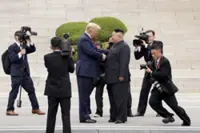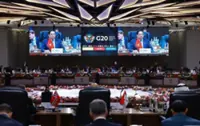Each nation has one vote at the UN General Assembly and can decide to participate in and finance the work of multilateral organisations (or not). — Others
ALMOST 80 years after the creation of the United Nations, the Summit of the Future this month represents a timely effort to revitalise UN-based multilateralism to address the shared global challenges of our time.
Only 16% of the Sustainable Development Goal (SDG) targets are on track to be achieved by 2030.





